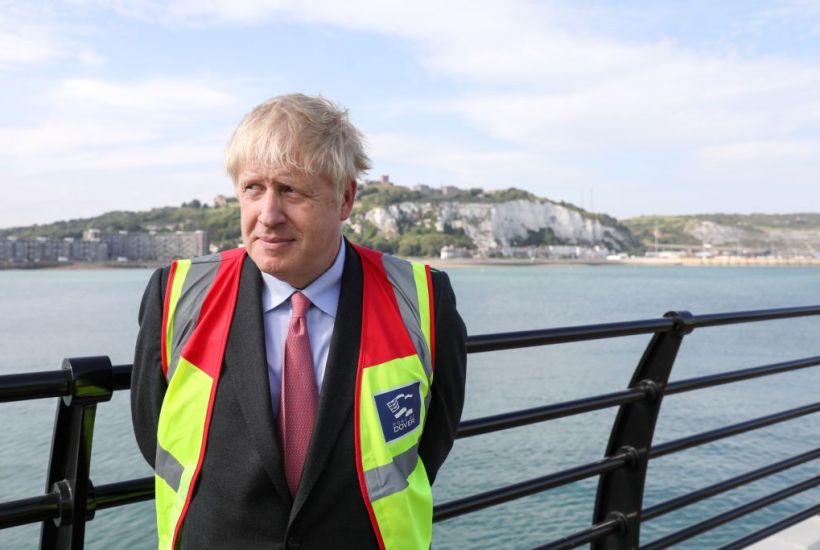I have a friend who insists that he takes little interest in politics. Even so, the other evening he came out with three sentences which take us straight to the heart of our present discontents. ‘I’m sick to death of talking about Brexit. Yet I can’t stop talking about Brexit. Why don’t the politicians just sort it all out?’
I told him that he was speaking for about seventy-five per cent of the electorate, but that neither he nor they should get their hopes up. Each day has been bringing a fresh instalment of confusion worse confounded. There is no reason to believe that this will shortly cease. It may be that the darkest hour is just before the dawn. It may also be that darkness has just asked for an extension.
All this has at least two unfortunate consequences. The first is economic uncertainty. Businessmen like to know where they stand. The second relates to the reputation of our politicians, which has never been lower in modern times. Their inability to resolve Brexit has confirmed the widespread impression that they are mostly a third-rate bunch, only interested in larding their expenses, and no match for their predecessors. That assessment is undoubtedly popular in licensed premises up and down the land. It is also unfair and untrue.
If there ever was a golden age when giant politicians bestrode public life, an obvious question follows. Why then did so much go wrong? The Crimean War was poorly managed. Although we did stumble into a sort of victory, it was an undignified process. The same was true of the Boer War. As for the First World War, that second Fall of Man, there must have been an alternative. What did it achieve, beyond preparing the wicket for the Second one? That was preceded by Appeasement, about which the arguments are endless. But one point is clear. British foreign policy in the 1930s ended in failure.
Then there was the botched final phase of the Indian Empire, leading to slaughter and enduring enmity. It may have been that there was no way to assuage Hindu-Muslim antagonism. We did not seriously try. Then we move on to Suez and the scuttle from Africa. Yet all that did surprisingly little damage to the average Briton’s self-esteem.
There are two explanations for this. First, although there were massacres in the Sub-continent and mayhem in Africa, that was all a long way from home. Second, at the end of the big wars which did touch us directly, we were always on the winning side. So we could take pride in being British and enjoy the services of thanksgiving. No doubt the prayers during those services often had a complacent tone. That was unjustified. We ought to have given thanks to God or infinity or whatever – for the beneficence of geography, in the form of the English Channel. It spared us so much. We did suffer, but not on the scale of the ravages and miseries and destruction which afflicted so much of the Continent, and discredited the nation state. From this, there emerged a modern political culture which we find largely incomprehensible.
That brings us to the EU and to the UK’s attempt to drain the Channel, at least in geopolitical terms. This now seems doomed, which ought not to be so surprising.
From the outset, British membership of Europe was enmeshed in self-deception and deceit. The Treaty of Rome contains the phrase ‘ever-closer union’, so we should have known what we were signing up to. Instead, buoyed up by the intellectual laziness which often afflicts British politicians in their dealings with theoretically-minded continentals, we persuaded ourselves that the foreigners did not really mean it. That said, there are some grounds for scepticism. Would the French ever actually agree to join a federation? But ‘ever-closer union’ was always much more than a post-prandial accompaniment to the brandy fumes. It was a basic aspiration. We thought that we could restrict ourselves to mere membership of a common market. That was never on offer.
Widespread self-deception was reinforced by active deceit. There were British politicians who fully supported ever-closer union, though they rarely admitted this to the British public. In The Blessed Plot, the late Hugo Young chronicled and applauded their efforts. These characters believed that as they were acting in Britain’s best interests, they were justified in economies with the truth. It was as if they were dealing with a sick child which was refusing to take its medicine. So: distract the brat, then quickly shove a teaspoon of medicine into its gob, following that up with a sweet and ‘There, there: what was all the fuss about?’
It did not work. The Euro-fanatics – as Ken Clarke describes himself in his Memoirs – knew that by taking Britain into the EU, they were carrying out transplant surgery; inserting a new organ into our body politic. In the early years, a lot of immuno-suppressant drugs would be needed. As time passed, however, the patient would settle down. That has not happened.
It now looks as if we are once again stumbling: this time, out of Europe. It has been another thoroughly undignified performance and as such, seriously bad for national morale. But it may be that this was all inevitable. That this is how human beings behave when great issues are at stake. Compare, for instance, the American Civil War and its 500,000 dead. There must have been an easier way to deal with all that. It was not found. ‘Original sin’ is still the best two-word summary of the human condition.
So we can only hope that this time, the sins are not too grievous and that after a surprisingly short interval, the Brexiters will be saying to the Remainers: ‘There, there – what was all that fuss about?’
This may yet happen, and if so, what a relief it will be to free ourselves from Brexit-obsession and to escape from Brexit fatigue.
Got something to add? Join the discussion and comment below.
Get 10 issues for just $10
Subscribe to The Spectator Australia today for the next 10 magazine issues, plus full online access, for just $10.





















Comments
Don't miss out
Join the conversation with other Spectator Australia readers. Subscribe to leave a comment.
SUBSCRIBEAlready a subscriber? Log in